This Blu-ray from Eureka Entertainment is currently available for purchase.
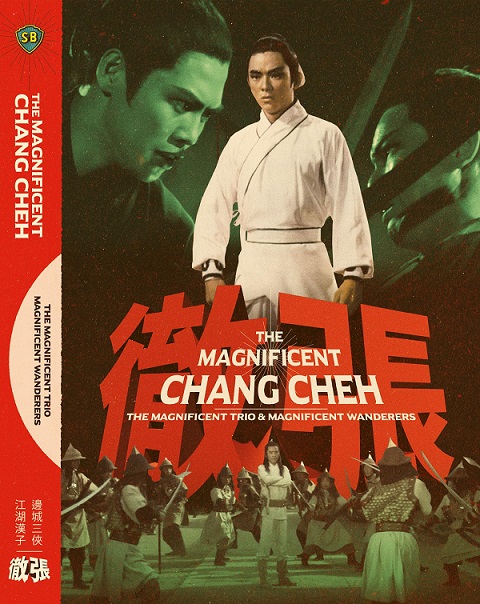
Over the past couple of years, this reviewer has been fortunate enough to receive many Blu-ray review copies. A lot of the pictures are internationally produced, with a good portion being from Hong Kong. It’s surprising how many of these efforts were directed by Chang Cheh, often for the Shaw Brothers. This makes sense though, as in his homeland the filmmaker is considered iconic for starting new trends and bringing new elements into the martial arts genre. One-Armed Swordsman (1967), The Flying Dagger (1969), The Pirate (1973), Boxer Rebellion (1976), Chinatown Kid (1977) and Five Deadly Venoms (1978) are but a few of his more famous titles.
Now Eureka is releasing the Blu-ray The Magnificent Chang Cheh, which presents two more films (with the word magnificent in the title) from the movie maker’s lengthy catalog. Included is the early effort The Magnificent Trio and the later feature Magnificent Warriors. Both are period efforts with impressive widescreen photography and plenty of wild action. Despite the two films being put on a single disc, the image quality is excellent and the set will deliver the goods for anyone who enjoys martial arts pictures.
As mentioned, The Magnificent Trio is one of Cheh’s early efforts before he had risen to prominence in the Hong Kong movie world. However, that doesn’t mean it isn’t a great picture. In fact, it’s just as strong as some of the films mentioned above.
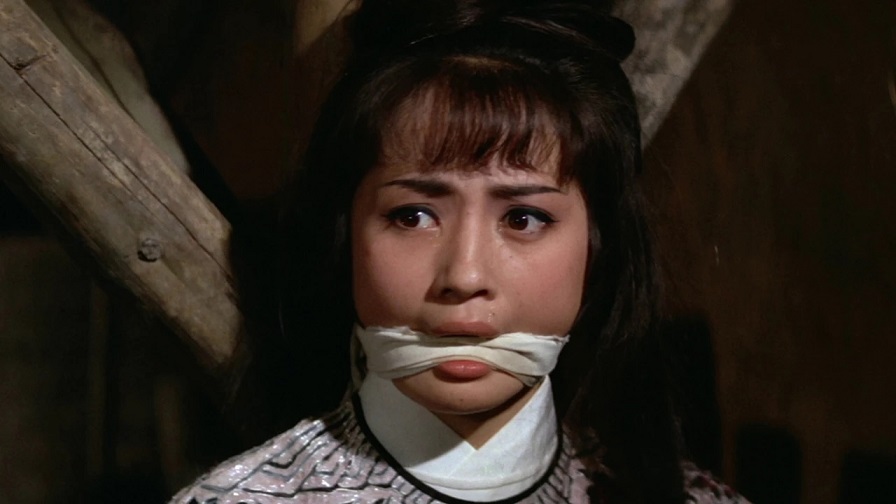
The story is set at the end of the Ming dynasty and follows great warrior Lu Fang (Jimmy Wang Yu) returning home after serving his country on the battlefield. When he passes by a home and sees three poor farmers with a female prisoner, he steps in and finds himself in the middle of a hostage situation. He learns from Mati village leader Gao Bao-shi (Tien Feng) that they are starving and desperate. The evil Magistrate Wei Huaire (Lui Ming) is ignoring the emperor’s rules, taking advantage of locals and leaving them penniless. The farmers have kidnapped the leader’s daughter, but have no intentions of harming her and only want to negotiate that which is owed to them.
In the meantime, the villain sends henchman Master Yan Ziqing (Lo Lieh) and others to slaughter the group. In fact, he assigns his own vicious prisoners to help do the job, making false promises that he will pay and perhaps free them for their efforts. After trying to moderate a solution, Yan realizes the reason for the situation and strives to help Lu and the others. Another veteran, Huang Liang (Cheng Lei) also appears on the scene to help. In the end, the magistrate does every vicious and conniving thing possible to the group, leading the three leads to fight back during a bloody showdown.
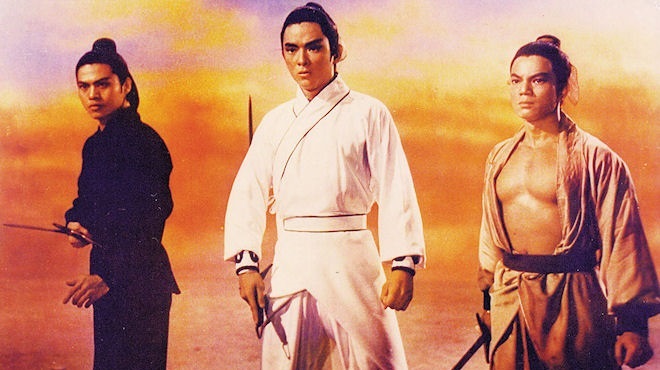
The high-definition transfer provided for this release is surprisingly strong. The image is very clean and sharp, in fact, much more so than anticipated. In fact, the accompanying stills in this review aren’t as good as the actual disc’s image. In both films, there are a few shots that are soft (due to the original photography), but it all looks about as perfect as it possibly can. It’s a fun drama as well, with all the characters making strong impressions and standing out as they come together and lead a raid. The action is messy and, at times, nasty. Some of the characters meet a nasty fate, adding tension to the proceedings. And the elaborate sets, while stylized (it looks like the movie was primarily shot on a soundstage), are beautifully laid out. There is some amusing melodrama, including a doomed romance, but in summation this is a very good film with plenty in it to recommend. One can certainly see Cheh as a skilled filmmaker breaking out at this early stage in his career.
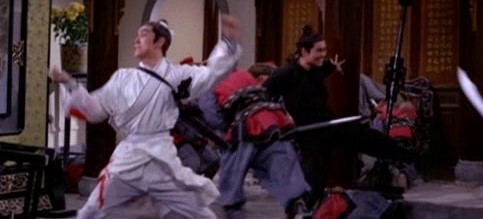
Another plus is an informative commentary track from East Asian film expert Frank Djeng and martial artist/filmmaker Michael Worth. They know their business and give plenty of details about the movie and everyone involved. Djeng also delivers some fascinating trivia. Early on, he notes that the minor female performers actually receive top billing in the movie. This is because most films during this period did not star men and female performers were more famous. It was just at the beginning of the action cinema boom in the country, before male performers gained notoriety. There are plenty of other tidbits about Cheh and the film, making this a really enlightening track.
The second film, Magnificent Wanderers, is quite different in comparison. It came ten years later, when a less serious and more comedic streak was running through storylines. The plot involves a skilled and wealthy warrior Chu Tie Xia (David Chiang) who has great talent with a bow. He returns to his village to find his land having been invaded by Mongols, who want to kill him and take his “fortune”. As it turns out, Chu has already given most of it away to help in the rebellion against the villainous forces. He befriends a trio of con men (including Alexander Fu Sheng) and tries to convince them to join his movement. The group eventually use their skills to take down and mostly embarrass their Mongol oppressors. Getting the brunt of it are two henchmen serving their nasty ruler.
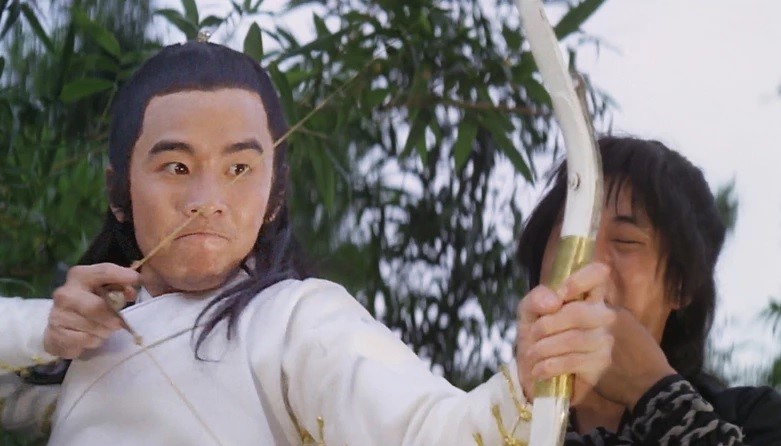
This movie isn’t as effective or polished as the first title, but it does feature some fun comedic moments. The con artists are entertaining to watch as they scam bad guys and perform impressive and creative stunts. One notable hero hops around doing almost constant backflips. It’s amazing to witness and I imagine if you were to count them all he’s probably breaking some kind of on screen flipping record in the process. The tone is much, much lighter here, although the picture ends with a “gag” involving the henchmen being told they’re about to be executed, which, while played for yuks, is more unsettling than funny. Still, this is an entertainingly bizarre picture that does offer laughs and several unique fight scenes.
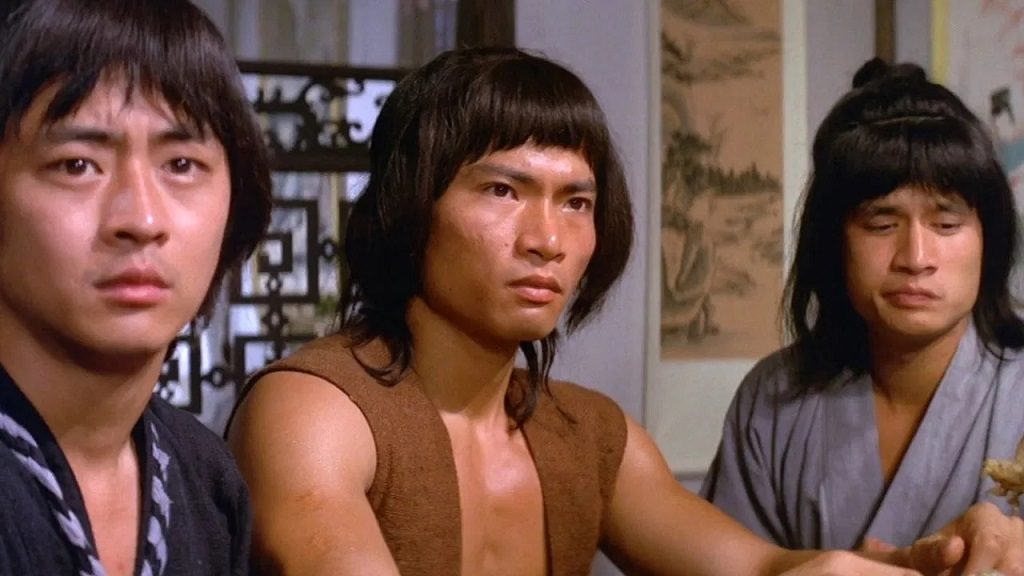
Like the last movie, there is a great film expert commentary track. This time out, it is provided by action cinema experts Mike Leeder and Arne Venema, who have great rapport and joke around as they point out the film’s great moments and its, well, less effective elements. They explain how Hong Kong cinema was beginning to change at this point, with a bigger emphasis placed on comedy. The pair also address rumors that the movie may have had a co-director and that Cheh may have been having a crisis of confidence and difficulty adapting to these particular growing trends.
And like the first movie, the high-definition transfer is quite strong. The sets aren’t as impressive and lavish on this production, but the film image looks very clean and crisp.
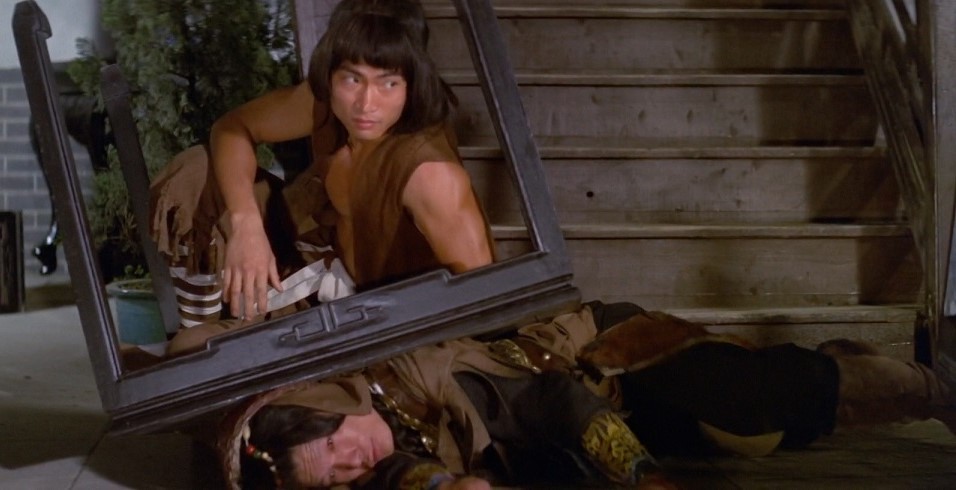
Also on the disc is a fantastic extra from Gary Bettinson, editor-in-chief of Asian Cinema journal. He goes into incredible detail, with visual examples, of Chang Cheh’s storytelling style. The speaker notes and shows examples of the way the filmmaker consistently uses the frame and composes images, as well as his cutting techniques and motifs. I thought it was a great bonus. You’ll learn a lot about Cheh and his style, and it is something that will really help aspiring moviemakers and theorists develop and hone skills in identifying common elements in a filmmaker’s visuals and storytelling.
The Magnificent Chang Cheh is another solid release from Eureka Entertainment, providing two lesser-known titles from the filmmaker that still have admirable qualities. In fact, the first film is almost as strong as some of the moviemaker’s classics. If you enjoy Asian titles or other titles from this distributor, you can’t go wrong with this release.


